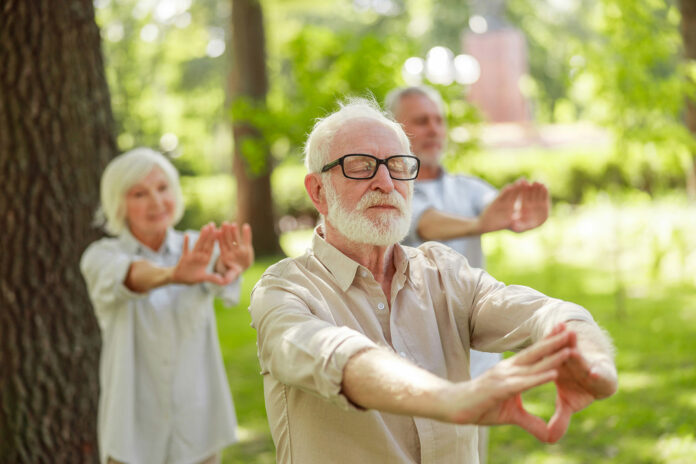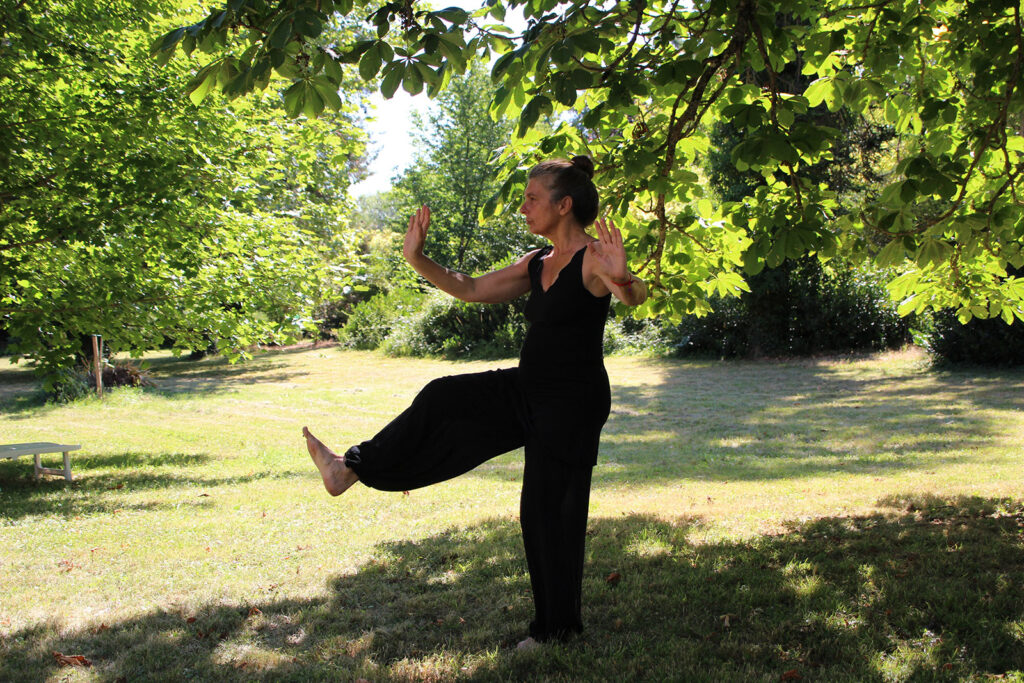
Lucy Collins-Stack, University College Cork and Aideen Sullivan, University College Cork
The centuries-old martial art of tai chi is shown to have many health benefits – including improving balance, reducing anxiety and preventing cardiovascular disease.
But these aren’t the only benefits this exercise may have. A recently published study has demonstrated for the first time that tai chi can reduce the severity of Parkinson’s symptoms in the long-term.
To conduct their study, the researchers recruited patients who had sporadic Parkinson’s disease. This is a type of Parkinson’s disease that’s not inherited from a family member. They focused on sporadic Parkinson’s disease so that they could examine the benefits of tai chi exclusively on Parkinson’s symptoms. The researchers excluded people with other health conditions (such as other neurodegenerative diseases) which may have prevented them from taking part in tai chi classes.
Participants were then divided into two groups – a control group of 187 people who did not exercise, and a group of 143 people who completed tai chi classes. Participants had an average age of 66 years. There were an equal number of male and female participants. All participants were at an early stage of Parkinson’s disease and had only been diagnosed for four years on average. This meant that any changes in symptoms observed between the two groups could be attributed to tai chi.
Participants in the tai chi group were given five classes over the duration of the study which started in 2016 and ended in 2018. They were also instructed to train twice a week for one hour. All participants were then followed up over a three-year period between 2019 and 2021 to track their symptoms.
The participants in the tai chi group had better motor function at the end of the study. The control group, on the other hand, experienced a faster decline of their motor functions – including their walking ability and balance. The control group also on average took more Parkinson’s drugs to manage symptoms over the course of the study compared to the tai chi group. This either means that the disease was more severe and progressed faster in the control group, or that tai chi had a protective effect on disease progression.
The positive effects of tai chi were also apparent in non-motor symptoms, with the tai chi group reporting better quality of life and wellbeing, sleep, as well as memory and thinking benefits.
Given that current medications used to treat and manage Parkinson’s don’t delay disease progression or prevent symptoms worsening, having an accessible yet effective supplement therapy such as tai chi could be beneficial for patients.

But as promising as these results are, the study had a few limitations of note. The first is that the groups were not randomised. The gold standard in clinical trials is to randomise participants into groups to prevent bias being introduced into the study.
So because the groups weren’t randomised, participants may have been recruited to a group because of motivation to exercise or other lifestyle factors. Another reason some participants were recruited to the control group was for practical reasons – such as the participant’s location, or work conflicts.
The researchers recommend that larger follow-up studies in the future use randomisation to prevent bias.
Exercise and Parkinson’s
This isn’t the first trial to show tai chi may have benefits for people with Parkinson’s disease. But previous trials only found benefits in the short-term, over a periods of six months. This study is the first of its kind to show long-term benefits.
Other types of exercise have also been investigated to see whether they benefit patients with Parkinson’s disease – including high-intensity interval training and aerobic exercise such as walking or swimming. These have been shown to benefit motor symptoms and slow the disease’s progression over a short period of time.
It’s not entirely certain why exercise – and specifically tai chi – is so beneficial to people with Parkinson’s. But we do know from other research that a lack of exercise can promote inflammation, which is detected in the blood of people with Parkinson’s disease. Chronic inflammation can lead to loss of neurons (nerve cells that send messages all over the body) in the brain.
People who do tai chi are shown to have anti-inflammatory markers in their blood. This may perhaps explain why it’s beneficial for people with Parkinson’s as it decreases inflammation.
Although more research will be needed – especially to understand if tai chi also benefits people with later stages of Parkinson’s disease – the findings of this latest study show tai chi could be used as a complement to treatment plans. It addresses both the physical and mental aspects of the condition, providing benefits such as improved balance, flexibility and wellbeing. Just be sure to consult with your GP or neurologist before trying it.
Lucy Collins-Stack, Senior Post-Doctoral Researcher, University College Cork and Aideen Sullivan, Professor and Head of Department of Anatomy & Neuroscience, University College Cork
This article is republished from The Conversation under a Creative Commons license. Read the original article.











